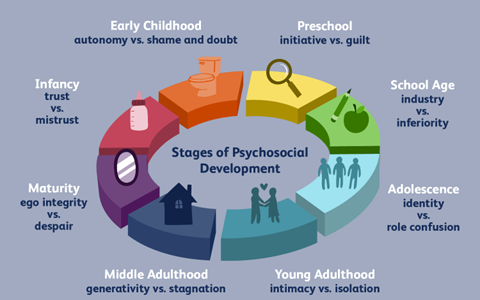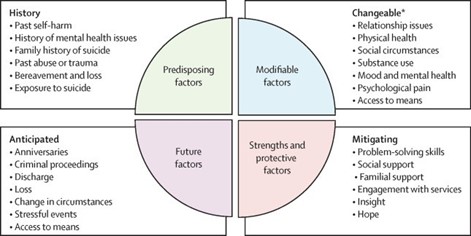According to Erickson’s Psychological theory of development, chronic illness can interfere with which stage of development in a 6-year-old scholar kid?
Trust versus mistrust
Autonomy versus shame and doubt.
Industry versus inferiority
Identity versus role confusion.
The Correct Answer is C
The Industry versus Inferiority stage occurs during the ages of 6 to 12 years old. At this stage, children start to develop a sense of competence and work towards mastering new skills. Success during this stage leads to a sense of pride, while failure leads to feelings of inferiority.
Chronic illness can interfere with a child's ability to develop a sense of competence and mastery, leading to feelings of failure and inferiority. This can have a negative impact on their self-esteem and overall development.

Nursing Test Bank
Naxlex Comprehensive Predictor Exams
Related Questions
Correct Answer is D
Explanation
This comment indicates the possibility of obsessive-compulsive disorder (OCD) because it describes a repetitive behavior that may be a compulsion. Compulsions are repetitive behaviors or mental acts that an individual feels driven to perform in response to an obsession or according to rules that must be applied rigidly. In this case, the individual’s compulsion may be to repeatedly check the location of their car keys in order to reduce anxiety or distress.

Correct Answer is C
Explanation
Schizophrenia is a severe mental illness associated with an increased risk of suicide. Individuals with schizophrenia are at a higher risk of suicide due to the presence of symptoms such as depression, hopelessness, and social isolation. Unemployment is also a risk factor for suicide as it can contribute to financial and social stress.
The other options do have some risk factors, but not as high as the individual in option c. Alcohol use and being independent-minded are not necessarily significant risk factors for suicide, and being active in church can be a protective factor. While depression is a significant risk factor for suicide, it is not the only factor, and having two best friends may be a protective factor. Diabetes, in and of itself, is not a risk factor for suicide.

Whether you are a student looking to ace your exams or a practicing nurse seeking to enhance your expertise , our nursing education contents will empower you with the confidence and competence to make a difference in the lives of patients and become a respected leader in the healthcare field.
Visit Naxlex, invest in your future and unlock endless possibilities with our unparalleled nursing education contents today
Report Wrong Answer on the Current Question
Do you disagree with the answer? If yes, what is your expected answer? Explain.
Kindly be descriptive with the issue you are facing.
